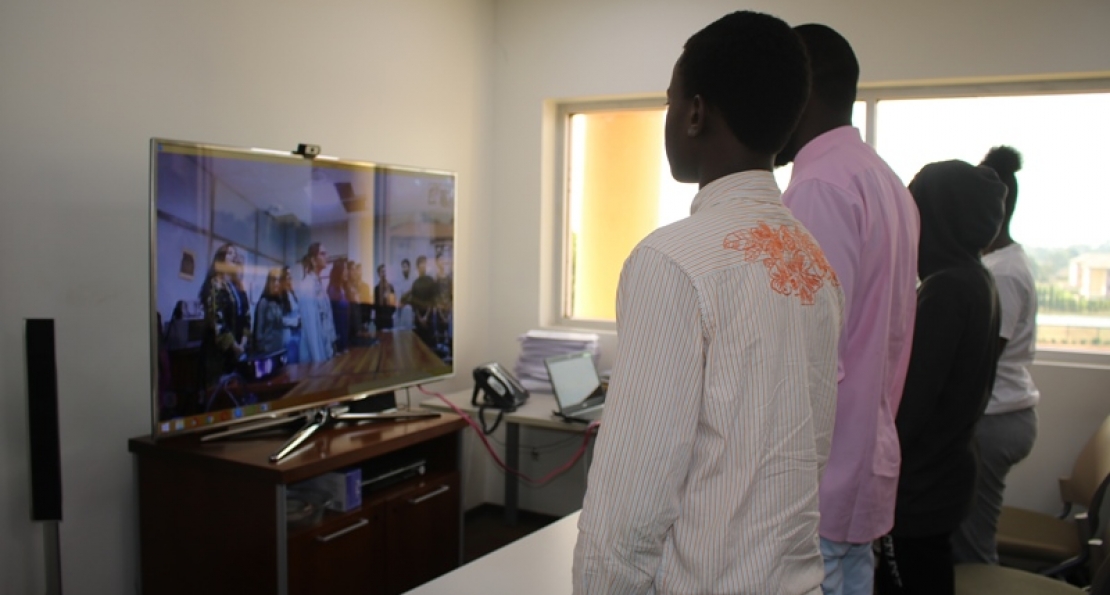The Global Course Connection is a program supported by the Global Liberal Arts Alliance (GLAA) an association which the American University of Nigeria belongs. GLAA is a consortium that gives students and faculty members from partner institutions the opportunity to work with peers around the world.
In my first-semester writing class, largely comprising freshmen, it was essential for us to familiarize ourselves with our classroom expectations, because of the interactive format of instruction, and the combined activities we participated in. Our multilingual course connection partners were members of an English skills class, four hours ahead of us, and 6,319 km away in Foreman Christian College (FCC), Lahore, Pakistan. This initiative enables us to communicate on different platforms with peers in another continent, step out of our comfort zones and learn about a new culture, share experiences and expand our knowledge and practice of college writing.
With the coordination of our respective instructors - cultural sensitivities inclusive - every member of our class was paired with a student in Pakistan. This allowed each of us to relate one on one and develop collegial relationships ahead of the formal shared writing tasks, and synchronous Skype meetings - where we gradually unraveled whom we were while sharing highlights about our educational system, customs, and value systems. Interviews with our peers and expressions about the overall reflection of the course connection revealed mutual sentiments about the ease with which we communicated with each other and the hope that we had established friendships that would grow even after the semester had ended.
The platform also gave us a window through which we could learn about an entirely different culture while appreciating expectations of college writing, and the particularities in our rich multi-ethnic backgrounds through our shared tasks. Most of us have lived and schooled in Nigeria since birth and this learning and writing experience was really appreciated by my course mates such as Hannah Gwatau and Mayowa Amo, whose main takeaways were the opportunities to personally engage with international students, be involved in peer review of submissions, and mutually share ideas on different topics. This program allowed us to freely interact with young people like us who were in a completely different environment and had diverse perspectives on concepts.
Through exchanges in the form of conversations or email and WhatsApp, we were able to assess and discuss our writing skills and techniques. Alexander Muotulum pointed out that it was a relief to him knowing that our peers were also learning about the technicalities of college writing and first-year life - just like us. We all agreed that we were getting better at this important skill through mentoring and practice. Interacting with our partners and sharing similar assignments contributed to the expansion of our knowledge about academic writing and composition styles in the English language. These made us appreciate even more our past high school foundations.
The course connection was a fun-filled provision that helped our class to understand first-hand the challenges that the English language poses to speakers of other languages, and each participant's determination to try harder because there was another audience to consider, other than our instructors – Jacqoline Austin at FCC and Emilienne Akpan at AUN. The partnership turned strangers into friends, opened our minds to worlds of endless possibilities across borders, and made us reflect on skill-building, integrity, and excellence as important values of our liberal arts education.
By Udochukwu Okoro
(Computer Science major)


